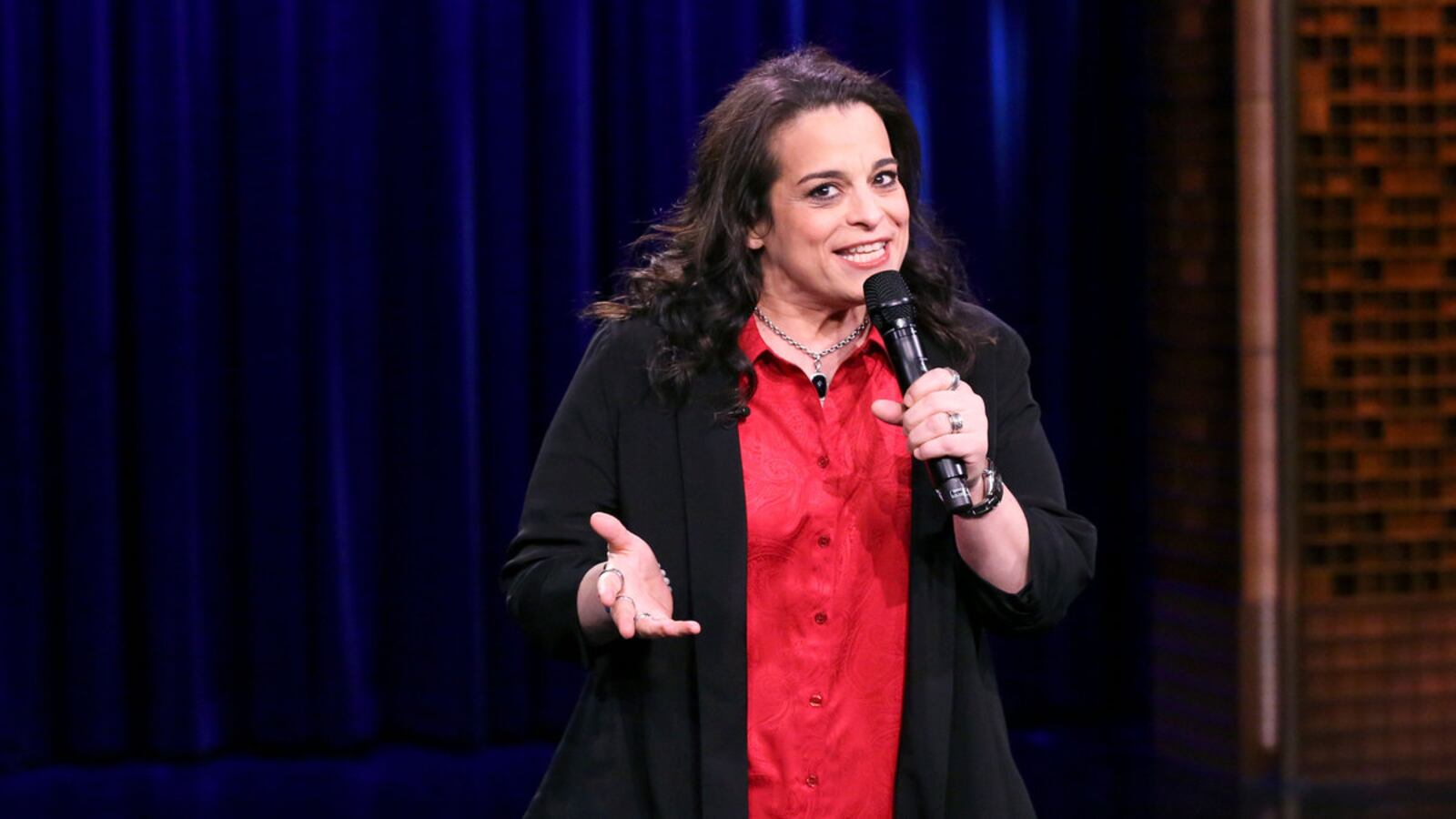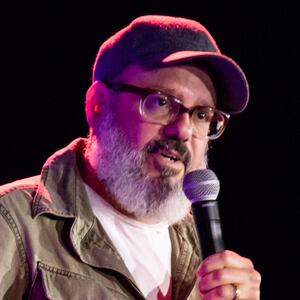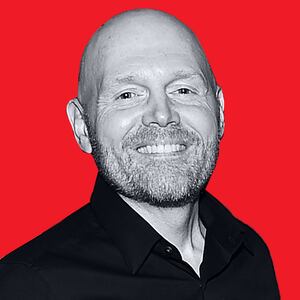When I talked to Jessica Kirson back in March for a piece about how comedians were coping with the nascent pandemic, she told me, “It’s very hard to not do stand-up. I’m one of those comics who go up every night, sometimes two, three, four, five, six times a night, so it’s very hard to not perform.”
Nine months later, the comedy clubs are still closed, but like so many of her fellow stand-ups, Kirson has adapted. When she appears on Zoom to tape this week’s episode of The Last Laugh podcast, it looks like she’s on stage. Had she not told me, I’d have no idea that she’s in her walk-in closet in front of a cheap blue curtain she bought on Amazon so she can perform from home.
“It’s really bad,” Kirson says of the current state of comedy. “It’s really hard for me. It’s hard for all my friends.” She has tour dates booked for January but is starting to doubt that they will actually happen. Explaining that stand-up has traditionally served as a form of “therapy” for her, she says, “It’s been a huge loss. I’ve experienced it like a death. It’s not a death, because it can come back. But my career is in a coma. And it’s been hard.”
Kirson, who has been a mainstay at the Comedy Cellar in New York for years, has tried just about everything to keep her stand-up career alive during the pandemic. Podcasts, drive-in theaters, public parks, you name it. “I’d rather do a Zoom show than do that,” she says of the outdoor shows that have been popping up all over an increasingly freezing New York. “It’s so depressing to me to just stand in the middle of a park and tell jokes, but I get why people are doing it.”
“I’ve made it work because I have been able to make some money doing that and I have children. So I have to do it,” she says of online shows like the one she’s been co-headlining weekly with her friend Rachel Feinstein.
Crowd work has always been a big part of her act and she recently discovered that it can work even better on Zoom. “Because everyone can see the person’s face,” she explains. “So it really gets laughs when I do crowd work. I’m like, ‘Dave, could you please pay attention to me?’ And then people crack up because they see Dave’s face.”
Kirson will be putting those new skills to the test in her biggest online show to date this Thursday, Dec. 10 as part of a new live-stream comedy lineup on RushTix.com.
In her first-ever hour-long special Talking to Myself, which came out last December, Kirson periodically turns her back to the audience and gives herself a “private” pep talk. It’s a move she so far hasn’t been able to make work on Zoom.
“It would be crazy,” she says. “I mean, I could do it, but it's not going to get a laugh because people will think I need to be in a mental institution.”
Highlights from our conversation are below and you can listen to the whole thing right now by subscribing to The Last Laugh on Apple Podcasts or wherever you listen to podcasts.
On her ‘long overdue’ hour-long stand-up special
“I felt that it was long overdue. I’m very realistic. You know, some people are like, ‘I should be doing this, I should have this.’ That was the one thing where I was like, this is ridiculous. I mean, I’d been doing stand-up 19 years at the time I got it. It was crazy to me that no one was giving me a special. Sometimes I feel like it’s the man-woman thing and sometimes I feel like it’s the kind of woman. I was never the hot, skinny, flirtatious female comedian. So I was just funny. And it’s taken longer, I think, because if someone had my humor, what I’m able to do—and believe me, I am filled with self hatred—but I do well when I do stand-up and people laugh a lot and people like what I do and I have a very good response. So I think that if I looked different and sold myself differently and had a different thing going on with the way I carried myself, I would have four or five specials.”
Why she wasn’t offended by Bill Burr’s ‘homophobic’ SNL monologue
“I think because I know him so well, I don’t get offended. Because he’s such a caring, loving, accepting person. I mean, he could not be more accepting of my gay marriage and me having children. And so he is one of those comics who enjoys getting people riled up, which is what so many people do on Twitter. They won’t do it live in a stand-up set, but they’ll do it on Twitter all day long. I do get concerned with a lot of comics and things they say. I have a lot of friends right now where I’m like, ‘Oh my god, did he really say that?’ But it’s so hard, because if you start saying, ‘Well, he shouldn’t say that and she shouldn’t say this,’ it’s like, where is the line? For example, I’m Jewish and I make fun of my family, I make fun of the traditions, I make fun of us being whiny and complaining and sometimes people will get offended by that. But that’s my experience. That’s my life. I will say there are some comics, not Bill, where I literally could not speak to them again. I still think they should be able to say what they want to say, even if it makes me sick.”
How she became Robert de Niro’s comedy mentor for ‘The Comedian’
“I taught him how to do stand-up. And not only did I teach him every day to do stand-up, I ended up writing for the film. I ended up directing some scenes because he wanted me to think of ideas. It was tough. He said it’s the hardest thing he’s ever done. Can you believe that? Because he had to seem like he had been doing stand-up for 36 years and it’s tough to have that confidence. I made it very clear to him that he has to seem confident, even if he’s freaking out, literally from the second he’s standing on the side of the stage. And I talked to him a lot about body language, because that’s very important, I believe, on stage. And I also helped him a lot, not just with stand-up, but his love interest was Leslie Mann, who I became very friendly with and I helped them make their love relationship seem real. Isn’t that nuts?”
Look out for a bonus episode The Last Laugh podcast later this week with stand-up comedian and ‘Daily Show’ correspondent Michael Kosta.



